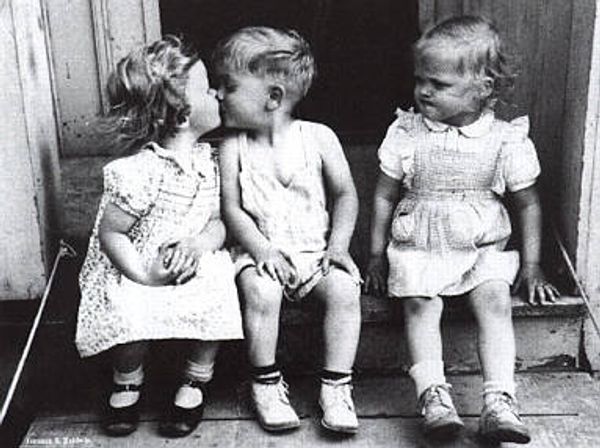Originally written for a Spanish conference, Hablar y Pensar, on December 2, 2016
I must admit that I, a Dominican from New York, cannot speak Spanish. What a shame is that. At least, that is what a lot of Dominicans say when I tell them. However, because I grew up around relatives who can speak Spanish, I can understand it, but I am not able to speak it at all. My mother can speak to me in Spanish, and I can reply in English. But that is not enough.
My family has never made me forget that I could not speak Spanish. They would say, “¿Y no te da verguenza?” And I would just smile and shrug my shoulders as a response. And when I tried to speak in Spanish, my family said I sounded “americano.” Some people also were more surprised by the fact that I am specifically a Dominican who does not know how to speak Spanish. They would laugh and say, “¿Un domincano que no sabe español? ¡Que increíble!” In fact, some people mistook me as Puerto Rican when I told them I could not speak Spanish. I blame this shame on the fact that my family is from a transnationalist country, in which Dominicans must find a balance between two cultures. Therefore, my identity as a Dominican has always felt linked to my knowledge of Spanish as much as English.
I had always assumed that I was unable to connect with my Dominican culture because I did not know Spanish. Even now, as I take Spanish 101, I have an emotional barrier that prevents me from speaking well. I was so afraid to speak it because I still carried the shame that has haunted me for years. However, as I have learned, my identity, or my cultural citizenship, is not solely based on my Spanish abilities but on many more factors that contribute to my Dominican identity.
According to a research entitled, “Mapping Dominican transnationalism: narrow and broad transnational practices,” by Jose Itzigsohn & Co., transnationalism is described as “immigrant communities that do not delink themselves from their home country; instead, they keep and nourish their linkages to their place of origin." Dominican immigrants have a great sense of pride coming from the Island. To achieve success in the US, Dominicans do not forget their culture but embrace it. Walking down Washington Heights in New York City, there are many Dominican-owned businesses, proudly displaying the Dominican flag. These immigrants also make yearly pilgrimages back to the Island because they yearn for the Dominican lifestyle and culture. For example, in the research by Itzigsohn & Co., a Dominican politician said, “that this is the age of the two Dominicans, one on the Island and one abroad." Spanish remains a way to relate to the Island. Dominicans are required to learn Spanish. That is why most people thought I was Puerto Rican. Puerto Ricans in the US have been an established community for over fifty years. With each succeeding generation, it is assumed that Puerto Ricans become “Americanized” since English surrounds them. A survey of American Latinos by NPR, the Robert Wood Johnson Foundation, and the Harvard School of Public Health states that “78 percent of the Puerto Rican respondents chose English, significantly more than any other Latino group” and “only 20 percent of Puerto Ricans speak Spanish at home." On the other hand, Dominicans, being relatively new in this country, speak more Spanish. According to the Pew Research Center, 88 percent of Dominicans speak Spanish at home and 43 percent of Dominicans report speaking English less than very well. My family came from the Dominican Republic in the 1980’s, and I am the second-generation, meaning that I still have pressure to connect with my culture and the shame of failing to do so. However, in succeeding generations, Dominicans probably will become like Puerto Ricans. As historical evidence suggests, future Dominican-Americans might lose touch with the language, just as I have. They will need to come to their own realization, as I have, that they are not less Dominican.
In her essay entitled, “‘The World We Enter When Claiming Rights’: Latinos and Their Quest for Culture,” Blanca G. Silvestrini says that “Cultural citizenship refers to the ways people organize their values, their beliefs about their rights, and their practices based on their sense of cultural belonging rather than on their formal status as a citizen of a nation." Therefore, as Silvestrini explains, people may face the dilemma of “competing interests of trying to belong” between their cultural community and their national community. To be a US citizen, learning English at an early age is a requirement to survive in this country. I was not taught Spanish at my elementary school. And my mother was determined that I learn English first before Spanish. Now, as an adult, I face the dilemma of deciding where I belong. To me, it seemed like Dominicans who speak Spanish can really talk and understand each other, especially living in a country in which English is dominant. And I envied Dominicans who knew Spanish and English because I was unable to switch between my national and cultural communities.
Coming to Williams, I was determined to take Spanish 101 this semester, so I would not feel ostracized within my community anymore. I also took a class on Latina/o Identities, and that class has made me realize that my lack of Spanish does not make me less of a Dominican. As expressed in Silvestrini's essay, my culture is not simply a language; it is also “a community, the arts, religion, history…It is a little of each, and all at the same time." Language is not an indicator of a culture. In fact, my Spanish professor is not Latina, but I learned so much from her. Nelly Rosario, a Dominican writer, in her essay called “On Becoming,” wrote, “As we get older, the meaning of culture and what we choose as our culture becomes more complicated than clothing and music. We are all in transition, becoming something else, giving birth to new selves." Yo soy un dominicano. Nada puede quitarme la identidad dominicana. Yo soy un dominicano. And my shame does not define me.





















